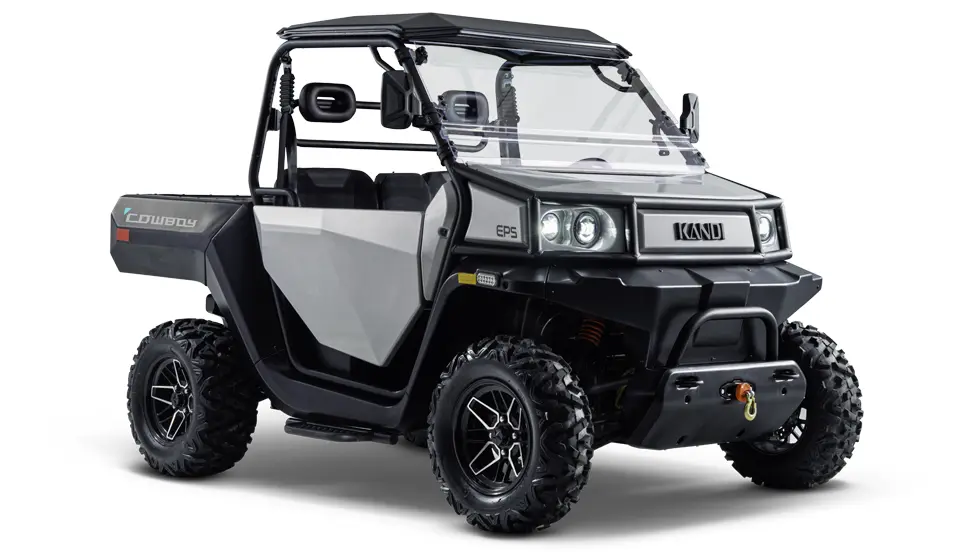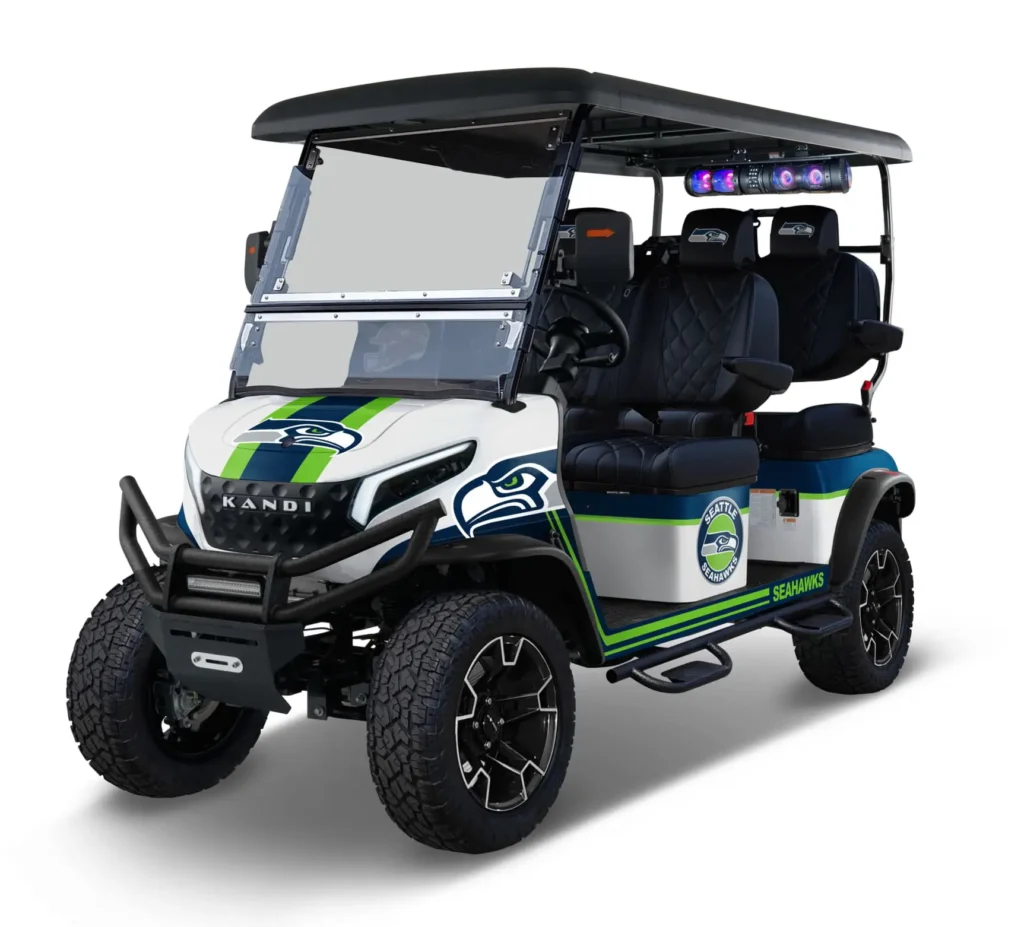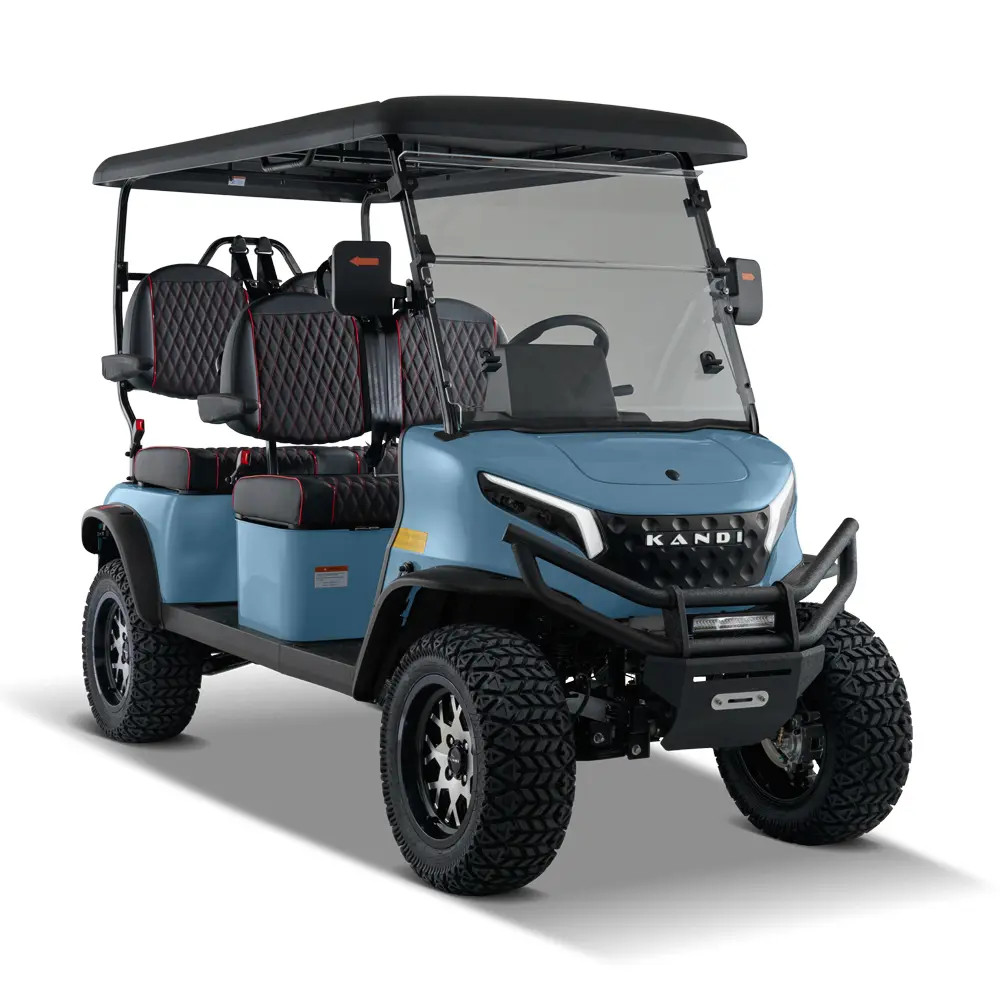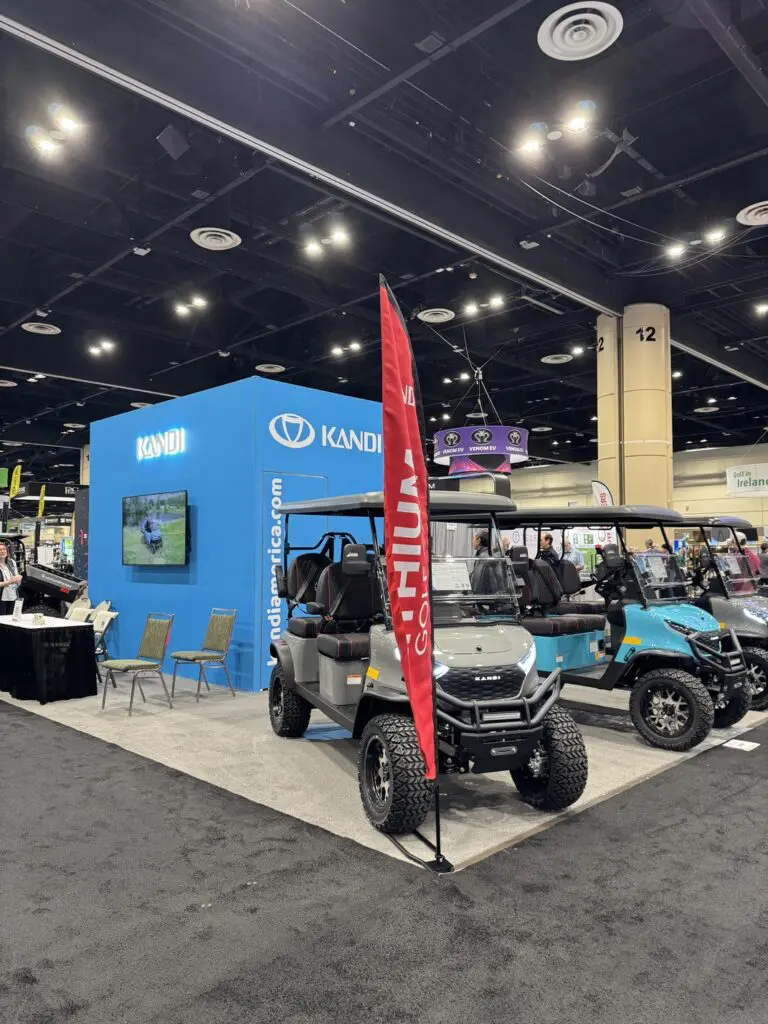A low-speed vehicle (LSV) is a relatively newer class of vehicle that’s sparked up in recent years. Low-speed vehicles are four-wheeled electric vehicles operating at slower speeds ranging between 20 and 25 miles per hour. Low-speed vehicles are also street-legal in many jurisdictions, and their electric nature makes them quiet, eco-friendly, and perfect for short-distance travel.
LSVs have some characteristics that make them different from golf carts and your standard car. LSVs have a number of safety features that allow them to be used on public roads, such as turn signals, mirrors, headlights, and seatbelts. In this blog post, we’ll look at LSVs, their benefits, regulations, and how to get one.
The History and Evolution of LSVs
Back in 1998, the U.S. Department of Transportation established LSVs as their own classification of vehicles. Originally, people used them for brief shopping trips and social gatherings within gated retirement communities, especially throughout the Southern U.S. regions. Because of their history of use in small neighborhoods, LSVs are also sometimes referred to as neighborhood electric vehicles (NEVs).
LSVs have gone through several technological advancements over the years. In the beginning stages, LSVs were powered by an internal combustion engine that utilized gas to fuel them. As concerns grew about their emissions, electric LSVs became the green solution that resulted in cleaner and quieter operations.
Manufacturers have paid close attention to the safety, comfort, and performance of LSVs, making changes in their suspension, braking, and ergonomics to offer a better overall experience. Many LSVs now have digital displays, GPS navigation systems, and connectivity to make them more user-friendly.
The Benefits of LSVs
LSVs are an effective method of urban transportation that comes with several benefits:
Environment: Because LSVs are electrically powered, they don’t produce any tailpipe emissions. That means users can lower their carbon footprint and promote a cleaner and healthier environment around them.
Economic: LSVs have much lower operational costs compared to gas-powered ones. You don’t have to constantly run to the gas station to purchase fuel. You don’t have to worry about oil changes. LSVs also have fewer mechanical components, meaning lower overall maintenance costs.
Convenience: LSVs are compact and easy to maneuver, making them perfect for navigating smaller streets, parking lots, and tight spaces that would otherwise be difficult to drive around.
Noise reduction: Due to their electric powertrains, LSVs are exceptionally quiet, making them ideal for use in residential areas where noise pollution must be minimal.
Regulations and Safety Measures for LSVs
LSVs must abide by the same regulations and safety measures as everyone else on the road, and there are a couple of important things to look at here.
Regulations: LSVs need to satisfy specific criteria to be considered street-legal vehicles. That means they need to be able to reach certain speed limits, abide by safety requirements, and comply with all the rules of the road like every other vehicle would.
Safety requirements: LSVs have safety features to ensure their operators and passengers are safe on the road. As mentioned earlier, some safety features include headlights and taillights for improved visibility, seatbelts, and turn signals to indicate where you’re planning to turn to other motorists. Your LSV also needs the applicable vehicle registration and insurance to be taken on the road.
Legalities surrounding modifications: It’s important to note that modifying your LSV may compromise its safety on public roads, potentially impacting your ability to get vehicle registration for public road usage. Always consult local laws before making modifications.
LSVs in Different Contexts
LSVs have become so popular because you can use them in so many different ways.
Golf Courses
LSVs are similar to golf carts in how quickly, quietly, and efficiently they can navigate the terrain without becoming a nuisance to other players on the greens. They also have storage compartments to store your clubs and other cargo.
Residential Communities
LSVs are popping up more frequently in residential communities because they’re eco-friendly and perfect for brief trips to neighbors, grocery stores, and other nearby facilities.
Commercial and Industrial Settings
If you’ve ever walked into a large warehouse, distribution center, manufacturing plant, or airport, you’ve most likely seen LSVs driving around. They’re great for increasing productivity in these types of settings.
Kandi America and Our LSVs
At Kandi America, we’re committed to the wholesale distribution of LSVs, and we offer a couple of different LSVs that will satisfy the needs of many users.
Kruiser 2P: Our Kruiser 2P is equipped with a powerful motor, a long-lasting battery that will get you up to a distance of 40 miles, and only a 6.5-hour charging time.
Kruiser 4P: Our Kruiser 4P differs from the Kruiser 2P in that it can conveniently fit up to 4 passengers.
Kruiser 6P: For users who want to fit up to 6 people on their LSV, the Kruiser 6P is the one to purchase.
Get Your LSV From Kandi America Today!
As you can see, LSVs offer many benefits that people can take advantage of. Whether you plan to take a quick scoot to the grocery store or play 18 holes of golf, LSVs offer everyone quiet, practical, and sustainable mobility. If you’re interested in purchasing a LSV, contact us at Kandi America. We offer LSVs that combine performance, reliability, and a commitment to a greener future.
FAQ
Q: Can I drive an LSV on a highway?
A: LSVs are not typically allowed on highways because of their lower max speeds.
Q: What is the difference between an LSV and a golf cart?
A: Both are considered LSVs but true LSVs are street-legal and equipped with safety features that make them legal for road use.
Q: Do I need insurance for an LSV?
A: Insurance requirements for LSVs may differ depending on your jurisdiction, but in most cases, it’s recommended to ensure protection in the case of accidents.
What is an LSV?
Low-Speed Vehicle x
Street-Legal x
Golf Cart x
Urban Transportation x
Eco-Friendly x
Safety Requirements x
Vehicle Registration x
Insurance x
Speed Limit x
Green Solution x



